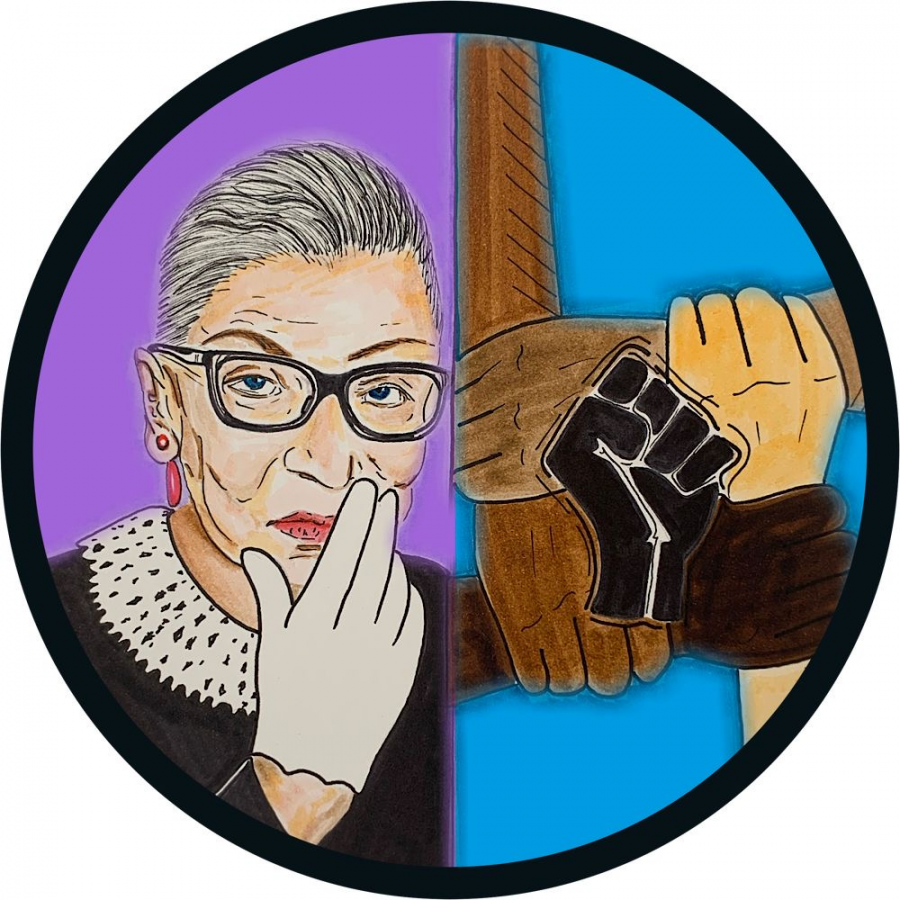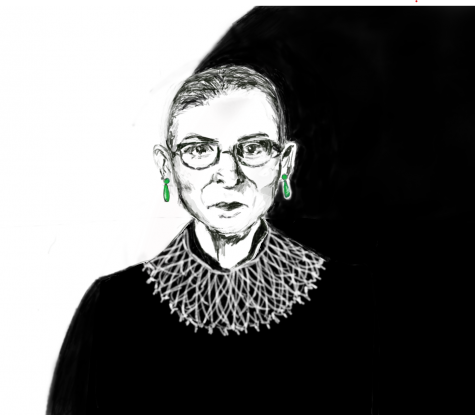RBG’s complicated legacy
October 1, 2020
Our nation is grieving. Ruth Bader Ginsburg, who passed away on Sept. 18, was undeniably a civil rights icon and helped make enormous strides made for women’s rights. In 1996, she led the ruling decision in United States v. Virginia, deciding that state-funded schools couldn’t be single-sex. She famously co-founded the Women’s Rights Project at the ACLU and argued cases that led the high court to affirm protections for women against discrimination. In 2015’s Obergefell v. Hodges, the Supreme Court ruled 5-4 to allow same-sex marriages in all 50 states — without her, the outcome may have been different.
Yet, while we mourn, it is important to recognize that Ginsburg did not promote equality for everyone. She defended Brett Kavanaugh after his appointment, voted in favor of an oil pipeline on indigenous Appalachian land, voted against tribal sovereignty, approved fast track deportations and called Colin Kaepernick’s protest against police brutality ‘dumb and disrespectful.’ No amount of wins for ‘women’s rights’ can offset the enormous harms she enabled through her white feminism.
To celebrate Ruth Bader Ginsburg as a champion of equality ignores and invalidates the experiences of the communities she repeatedly hurt. We should thank her for her dedication to reproductive rights and her accomplishments for gender equality, but even posthumously, we cannot venerate someone as an icon of women’s liberation when she refused to fight for all women. This is exactly how allies fail BIPOC.

A similar moral dilemma arose last year when Karl Lagerfeld died. He made enormous contributions to the fashion universe and was hailed by celebrities across the entertainment industry.
However, he was aggressively against the inclusion of plus-size models, claimed women were at fault for their own sexual assault during the #MeToo movement, asserted that child care should be reserved for women and claimed that “The greatest thing Germany invented was the Holocaust.”
Yikes.
The controversies surrounding Lagerfield are, in no way, comparable to that of Ginsburg, but all the same, worshiping someone’s image as larger than life and paying respects to the dead are very different things.
Of course, it is possible to applaud and appreciate Ginsburg’s role in protecting the right to choose an abortion, fighting for gender equality and voting rights while still recognizing and confronting the exclusivity of her feminism. It is even more possible to celebrate Ginsburg’s achievements without tone policing communities that were harmed by her judicial decisions and who are rightfully outraged by her glorification.
Though you can buy an RBG prayer candle online, she isn’t a saint, and pretending she’s one is willful ignorance. No one, least of all political figures, can evade necessary criticism.
For more information on how members of the Whitman community have responded to Ruth Bader Ginsburg’s passing, check out “Whitman examines Ruth Bader Ginsburg’s impact” in the News section.






